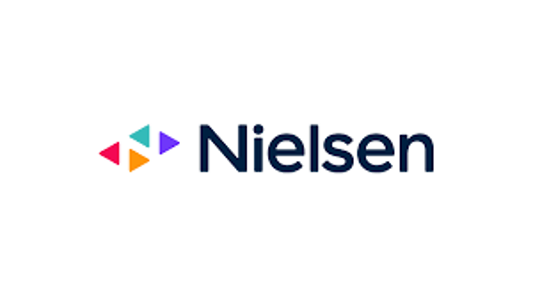By Samseog Ko
(Distinguished Professor, School of AI Convergence, Dongguk University, and former Commissioner of KCC (Korea Communications Commission))
The recent global spread of K-content such as K-pop and dramas is impressive. The Korean Wave, which started with K-content, is spreading beyond Asia to the rest of the world.
The increase in non-face-to-face cultural activities such as video content consumption during the coronavirus pandemic and the development of information and communication technologies centered on the internet and mobile have helped domestic content companies turn a crisis into an opportunity. In particular, Netflix, a global content distribution platform (OTT), played a major role.
According to one of an online survey, 15 of the top 100 box office hits were K-content, including "The Squid Game," which is the No. 1 most-watched movie of all time on Netflix. Spain ranked second with eight titles outside of the U.S., which speaks volumes about the popularity of K-content. It is not an exaggeration to say that the strengthening of K-content globally over the past few years has been 'synchronized' with the growth of Netflix.

Before and after the pandemic, OTT has rapidly emerged as the mainstream of the content market. It has become a game changer that has changed the structure of the content industry and market from the bottom up.
As a result, local TV and cable channels, known as classic media in the platform industry, are struggling in the market as they continue to decline. In addition, the government's media policy is shifting the center of gravity toward OTT, making it difficult for these media companies to find a way forward.
Traditionally, the domestic content industry has grown and developed alongside media platforms. It can be said that the two are inseparable, a needle and thread relationship. In the early days of the Korean Wave, the three Korean major TV stations(KBS,MBC,SBS) achieved great success in overseas markets based on their monopolistic position in the domestic content market.

Cable TV companies were also separated into MVPD(distributors) and channels, but as a matter of policy, it grew as a 'monolithic entity' within the same fence, leading the development of the content industry.
However, looking at the recent situation from the perspective of the media industry structure, it seems that domestic content providers are completely dependent on global platforms, including Netflix, for content distribution and the final stage of consumption.
They are also becoming increasingly dependent on funding for content production. Many experts recognize the success of Korean content in combining with the powerful global video platform of Netflix. On the other hand, there are also many critics who argue that Korean content companies are becoming dependent on Netflix and entering a "lock-in effect", which is a situation where a customer is dependent on a vendor for a product or service. It is clear that Netflix is a double-edged sword for Korean content companies.
On the 28th of last month, the Ministry of Culture, Sports and Tourism, which oversees content policy, and five major Korean OTT companies, including Tving, Wavve, LG U+, Coupang Play, and Watcha, signed a business agreement to ease the dependence of Korean content intellectual property (IP) on overseas platforms and strengthen the global competitiveness of the OTT content industry.
.jpeg)
The signing ceremony confirmed that the government and operators' perceptions of global OTTs, including Netflix, which are expanding their influence, are somewhat in line. From our content perspective, global OTTs are perceived as 'medicine in the right hands, but poison in the wrong hands'.
The major agreements can be summarized in three ways: cooperation on content creation and investment based on IP sharing between OTTs and production companies, promotion of overseas expansion of OTT platforms and content, and creation of a barrier-free environment to improve viewing convenience. The government's announcement that it will find the rights of content creators and expand support for content creation is positive.
However, it is disappointing that 'bold measures' such as reducing the dependence on global OTTs such as Netflix for content distribution and fostering local OTTs to go global are missing. It is even more disappointing that this is the second such agreement between the Ministry of Culture and domestic OTT companies since last year.
In fact, representatives of OTT companies who attended the event requested that "the MOC and the Korea Creative Content Agency (KOCCA) should focus on the overseas expansion of domestic OTTs and help them with policies and support projects" (Watcha). They also pointed out that "local OTTs have reached the stage where they can go global, but government support and policies are not coming fast enough" (Wavve). These were issues that have been raised many times before.

While K-content has been gaining ground globally, K-platforms have not been able to keep up with the pace of globalization. Compared to the power of K-content, the power of K-platforms is incomparably weaker. Even defending the 'safe room' from global platform providers such as Netflix and YouTube seems to be a challenge. Moreover, the lack of government measures for the K-content distribution platform, which has been in existence for two years, is also raising anxiety about the future of the content industry.
Of course, domestic media and content companies are primarily responsible for the globalization of K-platforms and strengthening their competitiveness.
However, it is up to the government to provide direction on policies to foster platforms beyond content and invest in related infrastructure. Like three-legged race, the government and companies must closely consult and focus their capabilities. However, the reality that even government policies are being implemented in a haphazard manner due to different ministries in charge of content and platforms and the lack of an organic consultation system is to be criticized.
In December last year, domestic OTTs Tving and Wavve signed a memorandum of understanding to merge. The two companies, which have to compete with Netflix at home and abroad, must have felt the pinch and had no choice but to merge.
Nevertheless, the fact that SK Group, which was ranked second in Korea's financial rankings as of 2023 and aimed to become a "comprehensive media group," "chose to merge as if to abandon the OTT business" is enough to leave a sense of disappointment from the perspective of the entire content industry.
Now that the Korean Wave is spreading around the world, it is urgent for K-platforms that support the power of K-content to go global and strengthen their platform power. Competitive K-platforms are not an option but a necessity for a 'sustainable Hallyu'.
In this situation, the government should not leave the policy of fostering K-platforms that can fulfill the role required at the global level in a vacuum or leave it to the market alone. It would be a 'market failure' and a 'government failure' at the same time. Even now, the government and companies should come together and declare a 'bold vision' of 'globalization of indigenous OTT'. We don't have much time left, given the physical timeframe for policies to take effect.
[특별 기고] ‘토종 OTT의 글로벌화’라는 담대한 비전이 필요하다
고 삼 석(동국대 AI융합대학 석좌교수·전 방통위 상임위원)
최근 K-팝·드라마 등 K-콘텐츠의 글로벌 확산세가 인상적이다. K-콘텐츠로부터 시작된 한류가 아시아를 넘어서 전 세계로 본격 확산되고 있다. 코로나 팬데믹 기간 동안 영상 콘텐츠 소비 등 비대면 문화 활동의 증가, 인터넷과 모바일을 중심으로 한 정보통신 기술의 발전으로 인해 국내 콘텐츠 기업들이 위기 요인을 기회 요인으로 반전시킨 결과이다. 무엇보다 글로벌 콘텐츠 유통 플랫폼(OTT)인 넷플릭스의 역할이 컸다.
한 인터넷 사이트가 조사한 바에 따르면 넷플릭스 역대 시청 순위 1위에 오른 ‘오징어게임’을 비롯해서 흥행 순위 100위까지 작품 중 K-콘텐츠는 15개나 이름을 올렸다. 미국 이외 국가 가운데 스페인이 8개 작품으로 2위에 오른 것을 감안하면 K-콘텐츠의 위상을 짐작할 수 있다. 지난 몇 년 동안 글로벌에서 K-콘텐츠의 위상 강화는 넷플릭스의 성장세와 ‘동조화 현상’을 보였다고 해도 과언이 아니다.
코로나 팬데믹을 전후로 OTT가 콘텐츠 시장의 주류로 급부상했다. 콘텐츠 산업과 시장의 구조를 밑바닥부터 바꾸는 게임 체인저(Game Changer) 역할을 톡톡히 하고 있다. 이로 인해 플랫폼업계에서 클래식 미디어(Classic Media)로 불리는 지상파방송, 케이블TV는 지속적으로 쇠락하면서 시장에서 고전을 면치 못하고 있다. 여기에 정부의 미디어 정책도 OTT로 무게 중심이 옮겨 가면서 이들 미디어 기업 입장에서는 활로를 찾기가 쉽지 않은 상황이다.
전통적으로 국내 콘텐츠 산업은 미디어 플랫폼과 함께 성장·발전해 왔다. 양자는 뗄래야 뗄 수 없는 ‘바늘과 실의 관계’라고 할 수 있다. 한류가 형성되던 초기만 해도 지상파방송 3사는 국내 콘텐츠 시장에서 독점적인 지위를 기반으로 해외 시장에서 나름대로 큰 성과를 거뒀다. 케이블TV 또한 종합유선방송사업자(SO)와 채널사용사업자(PP)로 분리는 되었으나 정책적으로 한 울타리 내에서 ‘일심동체’로 성장하면서 콘텐츠 산업의 발전을 이끌었다.
그러나 미디어 산업 구조 관점에서 최근 상황을 보면, 국내 콘텐츠사업자들이 넷플릭스를 비롯한 글로벌 플랫폼에 콘텐츠 유통과 최종 단계인 소비를 전적으로 의존하고 있는 모양새다. 콘텐츠 제작 재원에 대한 의존도도 점점 높아지고 있다. 이를 놓고 다수의 전문가들은 한국의 콘텐츠가 넷플릭스라는 강력한 글로벌 플랫폼과 결합되어 만들어 낸 성공사례로 높게 평가한다. 반면 국내 콘텐츠 기업들이 넷플릭스에 대한 의존을 넘어서 ‘종속’ 단계에 진입하고 있다는 부정적 평가도 적지 않다. 한국 콘텐츠 기업 입장에서 보면 넷플릭스란 플랫폼이 ‘양날의 칼’인 것은 분명하다.

지난 2월 28일 콘텐츠 정책을 총괄하는 문화체육관광부와 티빙, 웨이브, LG유플러스, 쿠팡플레이, 왓챠 등 국내 주요 OTT 5개사는 K-콘텐츠 지식재산(IP)의 해외 플랫폼 종속을 완화하고, ‘OTT 콘텐츠 산업 글로벌 경쟁력 강화를 위한 업무 협약’을 체결하였다. 이번 협약식은 영향력을 확대해 가고 있는 넷플릭스를 비롯한 글로벌 OTT에 대한 정부와 사업자들의 인식이 어느 정도 일치하고 있다는 것을 확인시켜 주었다. 우리 콘텐츠 관점에서 글로벌 OTT는 ‘잘 쓰면 약이지만, 잘못 쓰면 독약’이란 인식이 그것이다.
주요 협약 내용을 보면 △OTT와 제작사 간 IP 공유를 기반으로 한 콘텐츠 제작 및 투자 협력 △OTT 플랫폼과 콘텐츠 해외 진출 추진 △시청 편의성 제고를 위한 배리어 프리(Barrier Free) 환경 조성 등 세 가지로 요약할 수 있다. 정부 주도로 콘텐츠 제작사들의 권리를 찾아주고, 콘텐츠 제작 지원을 확대하겠다고 발표한 것은 긍정적으로 평가할만하다.
그러나 넷플릭스 등 글로벌 OTT에 대한 콘텐츠 유통 의존도의 완화나, 이를 위한 토종 OTT의 육성 및 글로벌 진출과 같은 ‘과감한 대책’이 빠진 것은 많이 아쉽다. 문화부와 국내 OTT사 간 업무 협약이 지난해에 이어 두 번째라는 점에서 아쉬움은 더욱 크다.
실제로 이날 참석한 OTT사 대표들은 “문화부와 한국콘텐츠진흥원(KOCCA)이 앞으로 국내 OTT의 해외 진출에 초점을 맞춰서 정책이나 지원 사업으로 도와줬으면 좋겠다”(왓챠 대표)고 요청하였다. 또한 “로컬 OTT가 글로벌로 갈 수 있는 단계가 됐으나 정부 지원이나 정책 속도가 빠르게 나오지 않고 있다”(웨이브 대표)는 지적을 했다. 이미 오래 전부터 여러 차례 거론되었던 문제점들이었다.
K-콘텐츠가 글로벌에서 상종가를 기록하고 있는 가운데 K-플랫폼은 여전히 글로벌 진출의 속도를 내지 못하고 있다. K-콘텐츠 파워에 비해 ‘K-플랫폼 파워’는 비교가 어려울 정도로 약세를 면하지 못하고 있다. 심지어 넷플릭스, 유튜브 등 글로벌 플랫폼 사업자들로부터 ‘안방’을 지키는 것마저도 힘겨워 보인다. 여기에 출범 2년이 되었지만 K-콘텐츠 유통 플랫폼에 대한 정부의 대책이 나오지 않고 있는 것도 콘텐츠 산업의 미래에 대한 불안감을 키우고 있다.
물론 K-플랫폼의 글로벌 진출이나 경쟁력 강화의 일차적 책임은 국내 미디어 및 콘텐츠 기업들에게 있다. 그러나 콘텐츠를 넘어서 플랫폼 육성 정책의 방향성 제시나 관련 인프라에 대한 투자 등은 정부의 몫이다. ‘2인3각 달리기’처럼 정부와 기업이 긴밀하게 협의하고 역량을 집중해야 한다. 그런데 정부 정책마저 콘텐츠와 플랫폼 주무 부처가 다르고, 유기적인 협의 체제 부재로 인해 각개약진식으로 손발이 따로 놀고 있는 현실은 비판받아 마땅하다.
지난해 12월 국내 OTT인 티빙과 웨이브가 합병을 위한 양해각서를 체결하였다. 넷플릭스라는 거대 플랫폼과 국내외에서 경쟁해야 하는 양사 입장에서는 역부족을 뼈저리게 느꼈을 것이고, 몸집 불리기 외에 선택의 여지가 없었을 것이다. 그럼에도 불구하고 2023년 기준 재계 순위 2위에, ‘종합 미디어 그룹’을 지향했던 SK그룹이 “OTT 사업을 포기하듯이 합병을 선택한 것”은 전체 콘텐츠 산업 관점에서 보면 아쉬움을 남기기에 충분하다.
한류가 전 세계로 확산되고 있는 지금 K-콘텐츠 파워를 뒷받침한 K-플랫폼의 글로벌 진출, 그리고 플랫폼 파워의 강화가 절실하다. ‘지속가능한 한류’를 위해서라도 경쟁력 갖춘 K-플랫폼은 선택 사항이 아닌 필수 조건이다. 이러한 상황에서 정부가 글로벌 차원에서 요구되는 역할을 수행할 수 있는 K-플랫폼의 육성 정책을 지금처럼 공백 상태로 방치하거나 시장에만 맡겨서는 안된다. 그것은 ‘시장의 실패’이면서 동시에 ‘정부의 실패’로 귀결될 것이다. 지금이라도 정부와 기업이 함께 힘을 모아서 ‘토종 OTT의 글로벌화’라는 ‘담대한 비전’을 선언해야 한다. 정책의 효과가 나타나는 데 소요되는 물리적 기간을 고려하면 우리에게 시간이 많이 남아있지 않다.







![[프리미엄 리포트] 미국 케이블TV 2025, 변화와 미래 전략](https://storage.googleapis.com/cdn.media.bluedot.so/bluedot.directmedialab/2025/05/vj931j_202505270106.png)







